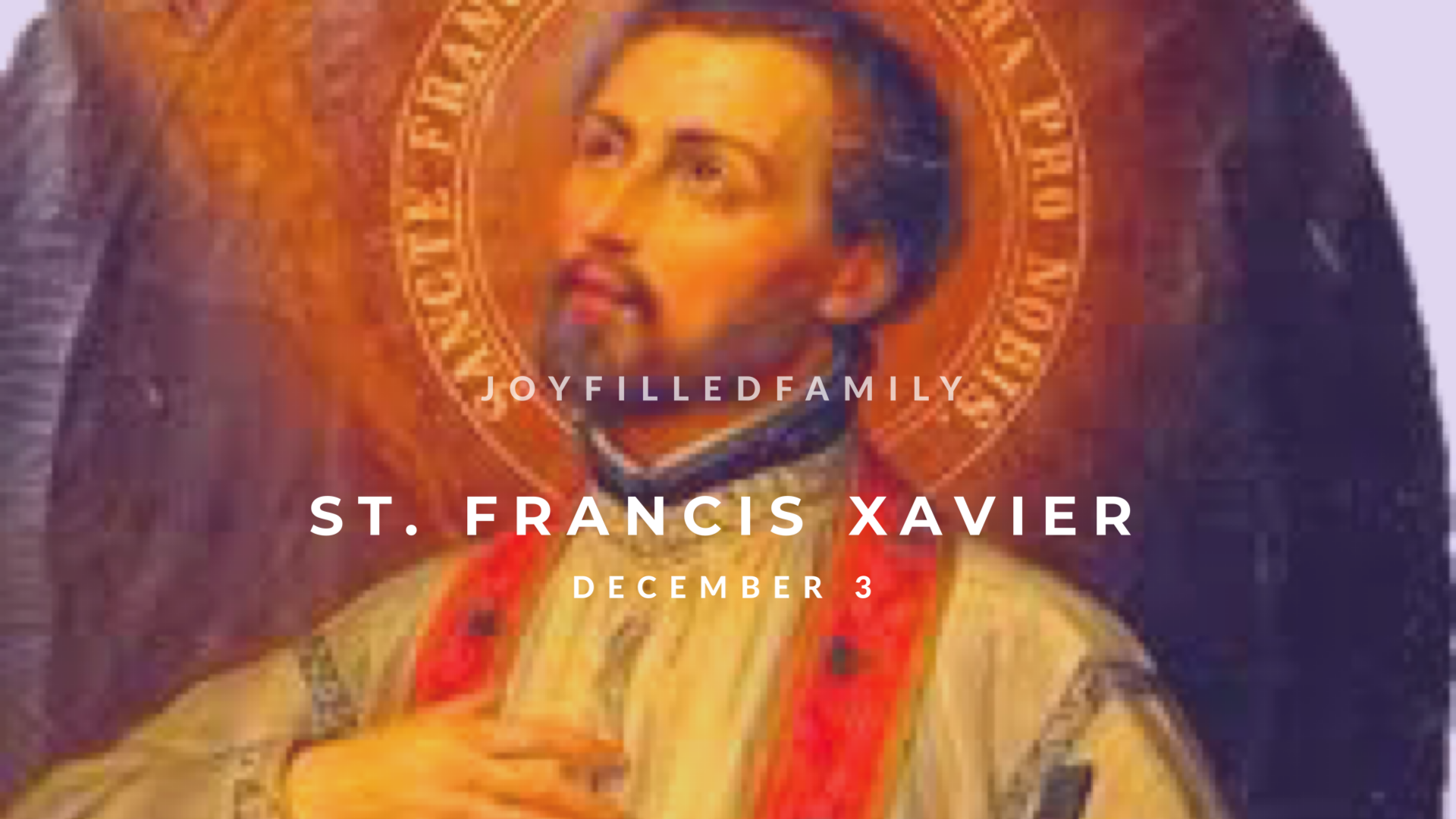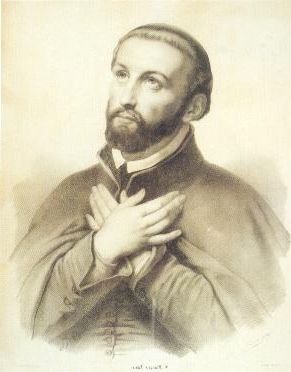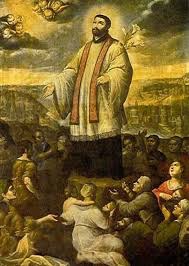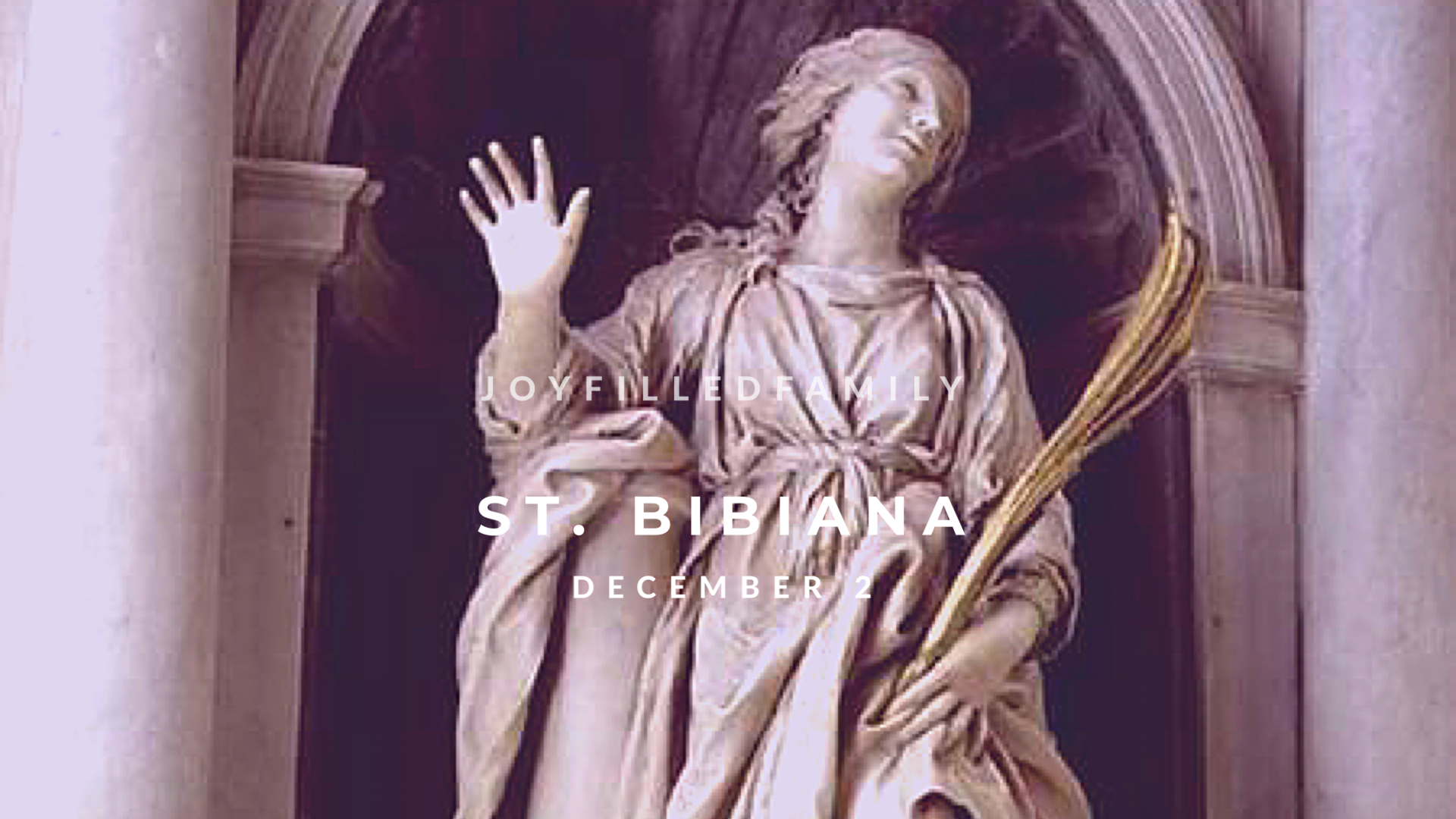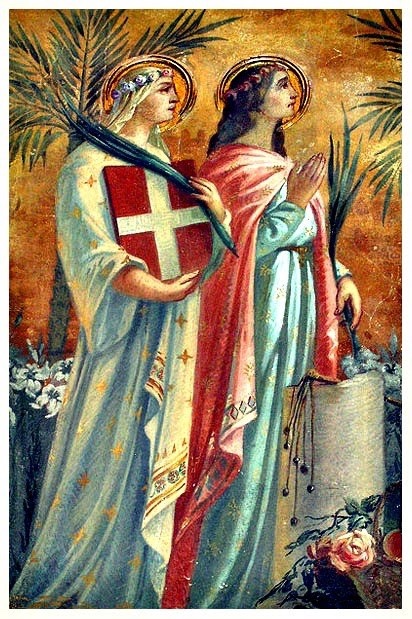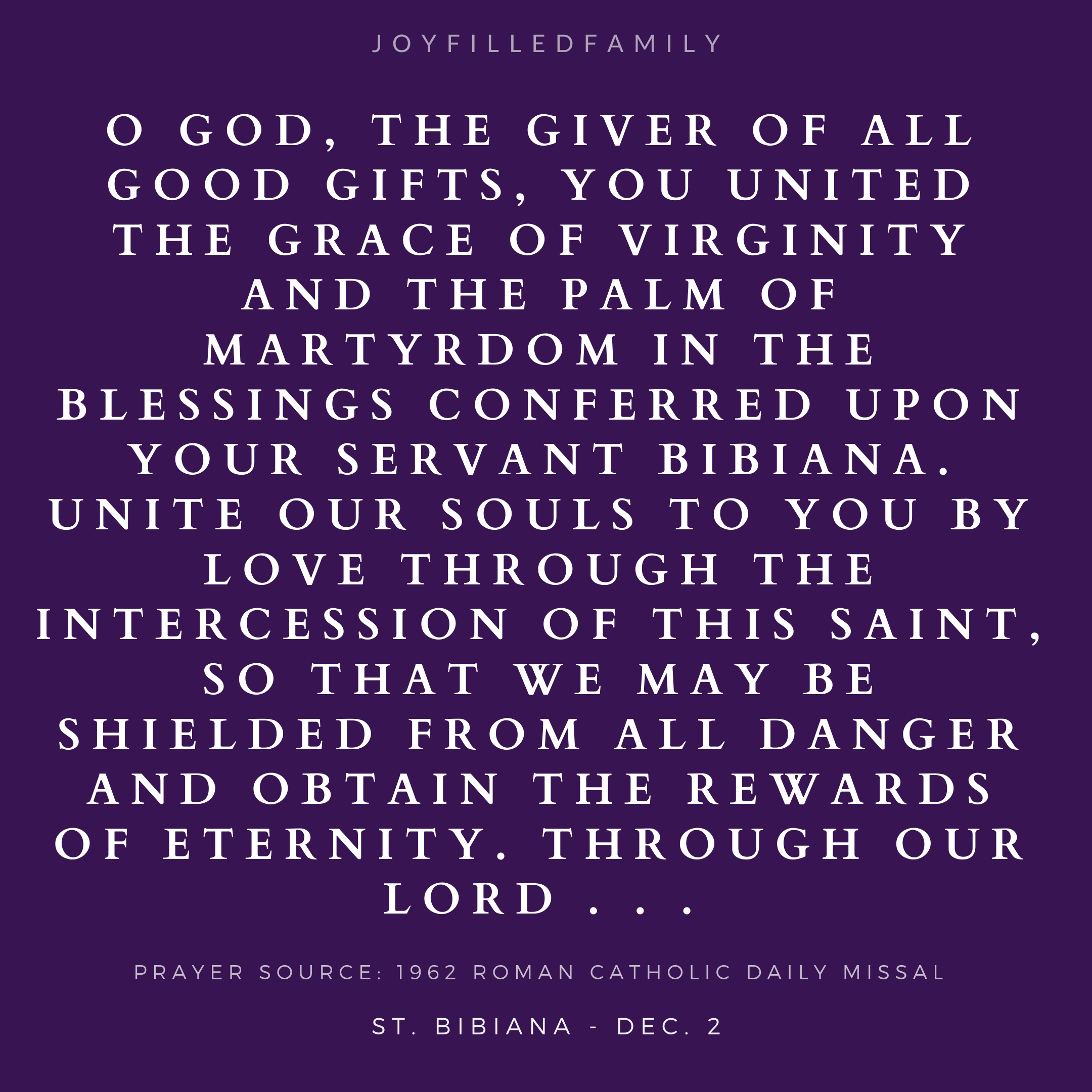There’s so much that we’re unpacking from our recent pilgrimage and much more that we will quietly carry, waiting for the good Lord to reveal in His time.
One thing is certain, we desire to joyfully take up our cross, to be transformed, refined, and stripped as He wills for us.

We further meditate on the lives of today’s saints and the following reflection from the #pictoriallivesofthesaints.
“A soul which truly loves God regards all the things of this world as nothing. The loss of goods, the disgrace of the world, torments, sickness, and other afflictions are bitter to the senses, but appear light to him that loves. If we cannot bear our trials with patience and silence, it is because we love God only in words.
“One who is slothful and lukewarm complains of every thing, and calls the lightest precepts hard,” says Thomas a Kempis.”
Sts. Primus and Felicianus, orate pro nobis.
Pictorial Lives of the Saints – Saint Primus and Felicianus, Martyrs
These two martyrs were brothers, and lived in Rome, toward the latter part of the third century, for many years, mutually encouraging each other in the practice of all good works. They seemed to possess nothing but for the poor, and often spent both nights and days with the confessors in their dungeons, or at the places of their torments and execution. Some they encouraged to perseverance, others, who had fallen, they raised again, and they made themselves the servants of all in Christ, that all might attain to salvation through Him. Though their zeal was most remarkable, they had escaped the dangers of many bloody persecutions, and were grown old in the heroic exercises of virtue, when it pleased God to crown their labors with a glorious martyrdom. The pagans raised so great an outcry against them that they were both apprehended and put in chains. They were inhumanly scourged, and then sent to a town twelve miles from Rome, to be farther chastised, as avowed enemies to the gods. There they were cruelly tortured, first both together, afterward separately. But the grace of God strengthened them, and they were at length both beheaded on the 9th of June.
Reflection – A soul which truly loves God regards all the things of this world as nothing. The loss of goods, the disgrace of the world, torments, sickness, and other afflictions are bitter to the senses, but appear light to him that loves. If we cannot bear our trials with patience and silence, it is because we love God only in words. “One who is slothful and lukewarm complains of every thing, and calls the lightest precepts hard,” says Thomas a Kempis.
JUNE 9: STS. PRIMUS AND FELICIAN, MARTYRS
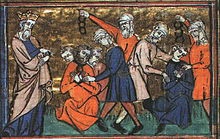
From Dom Guéranger’s The Liturgical Year.
ROSES and lilies are exquisitely alternated in the wreath woven by centuries for the bride of the Son of God. Though the world be heedless of the fact, it is none the less true that everything here below has but one object, namely to bedeck the Church with the attractive charms of heaven, to adjust her jewelled robes formed of the virtues of her saints, that she may be fitted to take her seat beside her divine Spouse, in the highest heavens, for all eternity.[1] The sacred cycle, in its yearly course, presents an image of those ceaseless labours whereby the Holy Ghost continues to form, up to the day of the eternal nuptials, that varied robe of holy Church, by diversifying the merits of God’s servants, her members here below. To-day we have two martyrs becrimsoned with their own blood, setting off the dazzling whiteness of Norbert’s works, or of William’s innocence; and to-morrow we may contemplate with delighted gaze the softer light beamed upon our earth by Margaret, Scotland’s pearl.
Primus and Felician, wealthy Romans, had already attained maturity of age, when our Lord made his voice heard inviting them to forsake their vain idols. Brothers according to the flesh, they now became more really such by fidelity to the same call of grace. Together they proved themselves intrepid helpers of the confessors of Christ amidst the atrocious persecution which raged against the Church during the latter half of the third century. In the same combat were they to fall side by side, exchanging this frail life here below for that into which, at one birth, they were to enter for ever in heaven. They furthermore were honoured by having their precious relics placed in the celebrated sanctuary consecrated to St Stephen, the Proto-Martyr, on Monte Cœlio; and they form its richest treasure.
The holy liturgy relates their triumph in these few lines:
Primus et Felicianus fratres, in persecutione Diocletiani et Maximiani accusati christianæ religionis, in vincula conjiciuntur: quibus soluti, inde eripiuntur ab angelo. Mox ad prætorem adducti, cum christianam fidem acerrime tuerentur, alter ab altero distracti sunt; ac primum varie tentata est constantia Feliciani. Sed cum suasores impietatis se posse quidquam verbis proficere despcrarent, affixis stipiti manibus ejus et pedibus, ipsum sine cibo et potu inde triduum pendentem reliquerunt. Postridie ejus diei prætor vocatum ad se Primum sic affatur: Vides quanto sit prudentior quam tu frater tuus, qui, obsecutus imperatoribus, apud ipsos est honoratus. Quem si tu quoque imitari volueris, particeps eris ejus honoris et gratiæ.
Cui Primus: Quid factum sit fratri meo cognovi ex angelo. Utinam quemadmodum sum cum eo voluntate conjunctissimus, sic ab eodem ne martyrio disjungar.
Quo dicto, excanduit prætor, et ad cæteros cruciatus quibus Primum affecit, præsente jam Feliciano, liquatum igne plumbum in os ejus jussit infundi. Mox utrumque perduci imperat in theatrum, in eosque immitti duos leones: qui prostrati ad eorum genua, capite et cauda ipsis blandiebantur. Ad id spectaculum cum amplius duodecim millia hominum convenissent, quingenti cum suis familiis christianam religionem susceperunt. Quibus rebus permotus prætor, eos securi percuti jussit.
Primus and Felician were brothers, and, being accused of professing the Christian religion during the persecution of Diocletian and Maximian, they were thrown into irons, which an angel broke, and they were delivered. But, being soon led again before the pr*tor, and as they most earnestly clung to the Christian faith, they were separated one from the other. The steadfastness of Felician was the first to be put to the test in divers ways. As they who strove to persuade him to impiety found it hopeless to gain aught from him by words, he was fastened hand and foot to a stake, and there left to hang three days without either food or drink. The day after that, the prætor having called Primus before him, thus addressed him: ‘Seest thou how much wiser is thy brother than thou art? He hath obeyed the emperors, and they have made him honourable. Thou hast only to follow his example to be made partaker of his honours and favours.’
Primus replied: ‘What hath befallen my brother I know, for an angel hath told me. Would to God, that seeing I have the same will that he hath, I were not divided from him in the same martyrdom.’
These words raised the wrath of the prætor, and in addition to the torments which he had already inflicted on Primus, he ordered boiling lead to be poured into his mouth, and this in presence of Felician. After that, he had them both dragged into the amphitheatre, and two lions let loose upon them, in presence of about twelve thousand people, who were gathered together to see the show. The lions only fawned upon the knees of the saints, making friends with them, caressingly moving their heads and tails. This spectacle converted five hundred persons of the assembled crowd, together with their households, to the Christian religion. The prætor, moved to anger by what had passed, caused Primus and Felician to be beheaded with an axe.
O ye brave veterans of the Lord’s battles, teach us what energy we must bring to the service of God, whatsoever be our age. Less favoured than we are, ye came late in life to the knowledge of the Gospel and of those inestimable treasures promised to the Christian. But in holy Baptism your youth was renewed as that of the eagle,[2] and for thirty years the Holy Ghost continued to produce rich fruits in you. When, in extreme old age, the hour of final victory at last sounded, your courage was equal to that of the most vigorous warriors. You were nerved up to such heroism and sustained therein, through prayer constantly kept alive within you by the words of the psalms, as your Acts attest. Revive then amongst us faith in the word of God; his promises will make us despise, as ye did, this present life. Lead our piety back to those true sources which strengthen the soul: the knowledge and daily use of those sacred formulas which bind our earth unfailingly to heaven, whence they were brought down to us.

